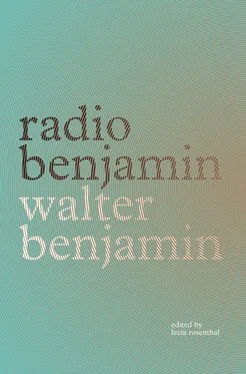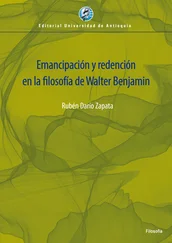This much is certain: the most significant shifting is a result of the continuous cooling of the Earth. This subjects the masses of rock to enormous tension, ultimately causing them to break apart and then to seek a new equilibrium by rearranging themselves, which we experience as an earthquake. Other shifting results from the erosion of mountains, which become lighter, and from alluvial deposits on the ocean floor, which becomes heavier. Storms, whirling about the Earth, especially in autumn, do their bit to rattle the planet’s surface; and finally, it remains to be determined just how the pull of celestial bodies exerts force on the Earth’s surface. But you might be thinking: if this is true, then the Earth’s crust is actually never at rest, so there must be earthquakes all the time. And you’d be right, there are. The incredible precision of the earthquake-monitoring instruments available today — in Germany alone we have thirteen seismological stations in various cities — is such that they are never completely still, which means that the Earth is always quaking, only most of the time we don’t feel it.
When, out of a clear blue sky, this quaking suddenly becomes noticeable, it’s even worse. And literally out of a clear blue sky. “Because,” writes our Englishman, who now finally gets his say,
the sun was shining in full splendor. The sky was impeccably clear, giving not the slightest sign of any natural phenomenon to come, when, between nine and ten in the morning, I was sitting at my desk and the table began to move, which was rather surprising as there was no reason at all that it should have. While I was still pondering the cause of what had just happened, the house started to shake from top to bottom. From beneath the ground came a shuddering boom, as if a storm were raging in the distance. I quickly set down my pen and jumped to my feet. The danger was great but there was still hope that it would all pass without harm; the next moment, however, would erase any uncertainty. A horrible crackling noise was heard, as if all the buildings in the city were falling down at once. My building was so jolted that the upper floors caved in, and the rooms in which I resided swayed so much that everything was turned upside down. I expected to be struck dead at any moment; the walls were crumbling, large stones fell from their cracks and the roof beams appeared to hover in midair. But at this time the sky became so dark that people couldn’t make out what was in front of them. Pitch-dark prevailed, either as a result of the immense amount of dust caused by the collapsing houses, or because of the volumes of sulfurous vapor escaping from the earth. Finally the night brightened again, the violence of the shocks relented; I collected myself as best I could and had a look around. It became clear to me that I owed my survival thus far to a small bit of luck; that is, had I been dressed I most certainly would have fled to the street and been struck dead by collapsing buildings. I quickly threw on some shoes and a coat, rushed outside and headed to St. Paul’s cemetery, where I thought I would be safest given that it sits on a hill. People no longer recognized their own streets; most could not say what had happened; everything was destroyed and no one knew what had become of their loved ones and all that they owned. From the hill of the cemetery I was then witness to a horrific spectacle: on the ocean, as far as the eye could see, countless ships surged with the waves, crashing into one another as if a massive storm were raging. All of a sudden the huge seaside pier sank, along with all the people who believed they would be safe there. The boats and vehicles so many people used to seek rescue fell equal prey to the sea. 2
As we know from other accounts, it was about an hour after the second and most devastating seismic shock that the massive swell, twenty meters high, which the Englishman saw from afar, came tumbling over the city. When the tidal wave receded, the Tagus riverbed suddenly appeared completely dry; its recoil was so powerful that it took all the river’s water with it. “When evening lowered over the desolated city,” the Englishman concludes, “it looked like a sea of fire: the light was so bright, you could read a letter by it. The flames soared from at least a hundred different points and raged for six days, consuming whatever the earthquake had spared. Petrified in anguish, thousands stood mesmerized before the city, as wives and children beseeched all saints and angels for help. All the while the earth continued to quake with greater or lesser force, often for a quarter of an hour without cease.”
So much for this fatal day, November 1, 1755. The disaster it brought is one of the very few before which mankind is as powerless today as it was 170 years ago. Here, too, technology will find a way out, albeit an indirect one: through prediction. For the time being, however, it seems that the sensory organs of some animals are still superior to our finest instruments. Dogs in particular will exhibit unmistakable agitation for days before the onset of earthquakes, which is why they are deployed to provide assistance to earthquake stations in vulnerable regions. And with that, my twenty minutes are up; I hope they didn’t go by too slowly for you.
“Erdbeben von Lissabon,” GS, 7.1, 220–6. Translated by Jonathan Lutes.
Broadcast on Radio Berlin, October 31, 1931, and on Southwest German Radio, Frankfurt, on January 6, 1932. The Funkstunde announced the broadcast for October 31, 1931, from 3:20–3:40 pm (see Schiller-Lerg, Walter Benjamin und der Rundfunk, 173). The Frankfurt broadcast was advertised in the Südwestdeutsche Rundfunk-Zeitung as taking place on January 6, 1932, with a variant title: “ ‘Das Erdbeben von Lissabon 1755’ [The Lisbon Earthquake of 1755], read by Dr. Walter Benjamin, Berlin.” The talk was the second of two broadcasts on the Youth Hour, from 3:15–4:00 pm.
1In 1756, Kant wrote three essays on the subject of the earthquake, emphasizing the nature of its physical dynamics rather than theological justifications: “Von den Ursachen der Erderschütterungen bei Gelegenheit des Unglücks, welches die westliche Länder von Europa gegen das Ende des vorigen Jahres betroffen hat” (“On the Causes of Earthquakes, on the Occasion of the Calamity that Befell the Western Countries of Europe toward the End of Last Year”); “Geschichte und Naturbeschreibung der merkwürdigsten Vorfälle des Erdbebens, welches an dem Ende des 1755sten Jahres einen großen Teil der Erde erschüttert hat” (“History and Natural Description of the Most Noteworthy Occurrences of the Earthquake that Struck a Large Part of the Earth at the End of the Year 1755”); “Fortgesetzte Betrachtung der seit einiger Zeit wahrgenommenen Erderschütterungen” (“Continued Observations of the Terrestrial Convulsions that have been Perceived for Some Time”). See translations by Olaf Reinhardt in Kant, Naturai Science, ed. Eric Watkins, (Cambridge, UK: Cambridge University Press, 2012).
2Benjamin borrows from an account of the earthquake by Rev. Charles Davy. For Davy’s text, see “The Earthquake at Lisbon,” in The Worlds Story: A History of the World in Story, Song and Art, ed. Eva March Tappan, vol. 5 (Boston: Houghton Mifflin, 1914), 618–28.
CHAPTER 25. Theater Fire in Canton
I have told you about the eruption of Vesuvius, which buried old Pompeii, and last time I told you about the earthquake that destroyed the capital of Portugal in the eighteenth century. Today I would like to talk about an event that took place in China almost 100 years ago. If I had simply wanted to tell you about any old catastrophe set in China, I could have — as you know all too well — chosen other, more recent incidents than this theater fire in Canton. You need only think about the battles that now fill the newspapers day after day or about last year’s floods of the Yangtze, about which we have far more detailed reports, naturally, than about this long-ago theater fire. 1But what matters to me is to speak about a subject through which you can really get to know the Chinese a little, and for that there’s nowhere better than a theater, perhaps. I don’t mean the plays that are performed, or the actors — them, too, but that will come later — but chiefly the audience and the space itself: the Chinese theater, which bears no resemblance to anything we imagine when we think of a theater. When a stranger draws near, he would believe himself to be anywhere but in front of a theater. He hears a formless din of drums, cymbals, and squeaking stringed instruments. Only after he has seen such a theater or heard one of the gramophone recordings of Chinese theater music does the European believe he knows what caterwauling is. If he then steps into the theater, he will feel like someone who enters a restaurant and first has to walk through a dirty kitchen: he will stumble upon a sort of laundry room in which four or five men stand bent over steaming tubs, washing hand towels. These towels play the biggest role in Chinese theater. People wipe off their face and hands with them before and after every cup of tea, every bowl of rice; servants are constantly taking the used towels out and carrying fresh ones in, often flinging them skillfully over the heads of the theater audience. Eating and drinking is rife during the performance, and that makes up for the lack of everything that provides us with comfort and a ceremonious atmosphere in a theater. The Chinese do not demand comfort, because they have none at home either. They come from their unheated apartments into the unheated theater, sit on wooden benches with their feet on flagstones, and it does not concern them in the slightest. Nor do they give a hoot about ceremony. That’s because they are much too great theater authorities not to demand the freedom to make their opinion of the performance known at any time. If they were to express it solely at the premiere — as we do here — then they would wait a long time, because there are plays in China that are presented over and over again for four or five hundred years, and even the newest are mostly versions of stories that everyone knows and has half-memorized in the form of novels, poems, or other plays. So ceremoniousness does not exist in the Chinese theater, and suspense doesn’t exist either, at least not with regard to the denouement of a plot.
Читать дальше












